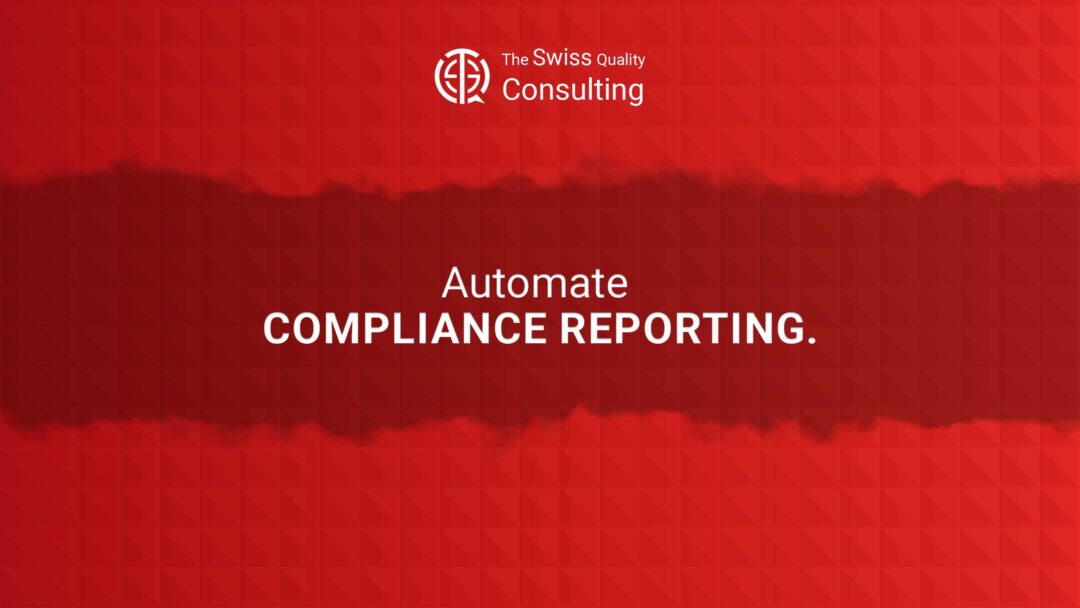Automating Compliance Reporting: A Key Step in Revolutionizing Compliance through Automation
Introduction
In the complex world of business, automating compliance reporting has become a critical strategy for enhancing operational efficiency. This article provides an overview for business executives, mid-level managers, and entrepreneurs on how automation in compliance reporting can significantly contribute to business success.
The Necessity of Compliance Reporting
In today’s increasingly regulated business landscape, compliance reporting has become an indispensable aspect of organizational success. It encompasses the systematic documentation and submission of business operations to regulatory authorities, ensuring that organizations adhere to the established laws, regulations, and industry standards that govern their respective sectors. Compliance reporting serves as a crucial mechanism for demonstrating adherence to legal and ethical obligations, fostering transparency and accountability, and protecting organizations from potential legal repercussions, financial penalties, and reputational damage.
Traditional methods of compliance reporting often rely on manual processes, involving the laborious compilation of data from various sources, generating reports in disparate formats, and submitting them to regulatory bodies through manual channels. These manual processes are not only time-consuming and resource-intensive but also susceptible to human error, potentially leading to inaccuracies, inconsistencies, and missed deadlines.
The shift towards automated compliance reporting has emerged as a transformative solution to the challenges of manual processes. Automated compliance reporting systems leverage advanced technologies, such as artificial intelligence (AI), machine learning (ML), and robotic process automation (RPA), to streamline the entire reporting process, from data collection and analysis to report generation and submission. These intelligent systems can seamlessly extract data from various sources, including enterprise resource planning (ERP) systems, customer relationship management (CRM) platforms, and operational databases, ensuring data integrity and consistency.
Automated compliance reporting offers numerous benefits for organizations, including:
Enhanced Efficiency: Automation significantly reduces the time and effort required for compliance reporting, freeing up valuable resources for more strategic initiatives.
Improved Accuracy: Automated systems eliminate the risk of human error, ensuring that compliance reports are accurate, complete, and compliant with regulatory requirements.
Reduced Costs: Automation streamlines processes, eliminates the need for manual data entry, and minimizes the risk of non-compliance penalties, leading to significant cost savings.
Enhanced Compliance: Automated systems provide real-time visibility into compliance status, enabling organizations to identify and rectify potential issues promptly.
Improved Decision-Making: Automated systems generate comprehensive compliance reports that provide valuable insights into business operations, enabling data-driven decision-making.
Audit Readiness: Automated systems maintain a centralized repository of compliance documentation, ensuring audit readiness and facilitating regulatory inspections.
In essence, the shift towards automated compliance reporting is not merely a technological advancement; it is a strategic imperative for organizations seeking to navigate the complexities of the regulatory landscape effectively. By embracing automation, organizations can streamline reporting processes, enhance accuracy, reduce costs, and strengthen their overall compliance posture, positioning themselves for sustainable growth and success in an increasingly regulated business environment.
Reducing Errors and Saving Time
Automating compliance reporting minimizes the risk of human error and significantly reduces the time required to compile and submit reports, thereby enhancing overall business efficiency.
Role in Change Management
Implementing automated compliance reporting is a crucial aspect of change management. As regulations evolve, businesses must adapt their compliance strategies swiftly. Automation ensures that businesses remain up-to-date with regulatory changes and implement them efficiently.
Seamless Adaptation to Regulatory Changes
Effective change management through automation allows for a seamless transition when adapting to new or updated regulations, ensuring that businesses remain compliant without disrupting their operations.
Impact on Executive Coaching and Leadership
Leadership is instrumental in successfully automating compliance reporting. Executive coaching services now emphasize the importance of understanding and implementing technological solutions for compliance management.
Leading with Technological Proficiency
Through executive coaching, leaders are trained to embrace technology-driven solutions, such as compliance automation, to enhance decision-making and strategic planning.
Effective Communication in Compliance Automation
Effective communication is key to the successful implementation of automated compliance systems. Ensuring that all stakeholders understand the benefits and workings of the automated system is crucial for its successful adoption.
Facilitating Organizational Buy-In
Clear communication about the advantages of automating compliance reporting fosters organizational buy-in, ensuring smooth implementation and effective usage.
Generative AI in Enhancing Compliance Processes
Generative Artificial Intelligence (AI) is transforming the field of compliance reporting. AI can analyze complex regulatory requirements and automate the process of compiling and reporting data, making it more efficient and reliable.
AI-Driven Insights for Compliance Management
Generative AI provides insights and automates processes in compliance management, ensuring businesses not only adhere to current regulations but are also prepared for future regulatory changes.
Conclusion
In conclusion, automating compliance reporting is essential for businesses seeking to enhance efficiency and ensure regulatory adherence. By adopting this technology-driven approach, businesses can streamline their operations, reduce errors, and stay ahead in a regulatory-compliant manner.
#ComplianceAutomation, #BusinessEfficiency, #RegulatoryCompliance, #AIinBusiness, #LeadershipInnovation

